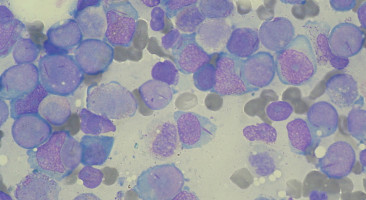
By analysing 442 samples from three groups of children and adults with acute myeloid leukaemia (AML), researchers have identified new immune classes of the disease that predict the likelihood of drug resistance and positive responses to immunotherapy.
Their compendium of immune profiles in AML could enable clinicians to develop targeted and personalised immunotherapy regimens for patients, who must frequently cope with resistance to standard chemotherapies.
AML can be difficult to treat because the malignancy has a diverse molecular and immune landscape, and not all patients respond to the same types of interventions.
Immunotherapies have been studied as potential treatments for patients who have developed chemotherapy resistance, but clinicians lack the tools to predict which types of patients might respond best to immune modulation.
To tackle this information gap, Jayakumar Vadakekolathu and colleagues studied 442 bone marrow samples from three groups of patients with AML (370 total patients).
The authors first discovered that most of the samples could be classified into one of two immune subtypes: immune-infiltrated or immune-depleted.
By comparing their observations with established disease categories from the European Leukemia-Net research network, the scientists could then predict which patients had the best survival rates and the strongest responses to treatment.
One key finding was that patients who showed higher expression of genes associated with the immune molecule IFN-γ were more likely to respond to the experimental immunotherapy flotetuzumab; interestingly, IFN-γ activity also predicted the likelihood of resistance to chemotherapy agents.
Vadakekolathu et al. conclude that T cell-targeting therapies should be further evaluated as a new treatment approach for patients with IFN-γ-dominant AML.
Source: AAAS
The World Cancer Declaration recognises that to make major reductions in premature deaths, innovative education and training opportunities for healthcare workers in all disciplines of cancer control need to improve significantly.
ecancer plays a critical part in improving access to education for medical professionals.
Every day we help doctors, nurses, patients and their advocates to further their knowledge and improve the quality of care. Please make a donation to support our ongoing work.
Thank you for your support.